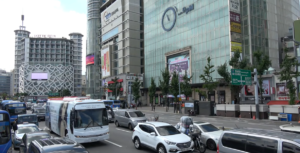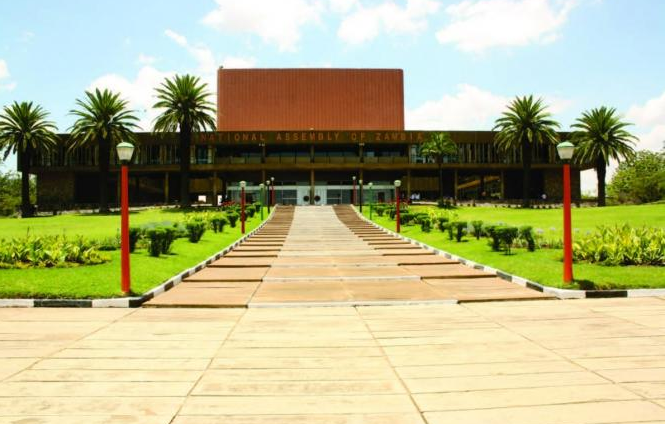Photos: YouTube Screenshots
By Tania Bore
In 2019 the National Human Rights Commission of Korea performed a survey of foreign residents in South Korea that asked questions about the racial discrimination they faced. Their findings? Sixty-eight-point-five percent of the people surveyed stated they went through racial discrimination in South Korean society. Fifty-six percent were verbally disparaged, 37.4% were disadvantaged at their places of employment, 46.9% experienced intrusions on privacy, and 28.9% had been denied employment.

It’s no secret that South Korea is experiencing extremely low birth rates and an ever aging population – they need immigrants. However, as a Seoul-based immigration policy expert highlighted, in order to make an otherwise homogeneous Korea an open place for immigrants it is necessary to enact a law that ensures that these immigrants are protected against racial discrimination.
South Korea has made several attempts to pass an anti-discrimination law, with the first effort dating all the way back to 2007. In June 2020 we saw South Korea try once again to enact such legislation. The objectives of the anti discrimination law were to address discrimination that was based on nationality, race, gender, sexual orientation, and other factors. Like its predecessors, the law ended up not being passed. Conservative religious groups prevented its passage mainly due to their opposition to the protections contained within the law towards sexual minorities.
Conservative religious groups are not the only powerful people in Korea opposing anti discrimination law. The hard right has continually practiced discrimination through seeking to exploit Korean Sinophobia.
South Korea’s own President Yoon Suk-yeol led a campaign where he made statements concerning foreigner’s unfair utilization of the state health insurance available in Korea and made a “strong appeal to jingoistic attitudes towards China” along with other nations. He also said that the younger generation did not experience structural gender discrimination while growing up.
However, in 2021 the South Korean Ministry of Gender Equality and Family performed a survey that revealed, in Professor of Korean Studies Vladimir Tikhonov’s words, a whopping “73.4 percent of women in their 20s reported feeling structural gender discrimination in their daily lives.”
While the total Chinese immigrant population in South Korea is more than 736,000, making Chinese immigrants outnumber immigrants to Korea from the other top 12 countries combined, University of Oslo Professor of Korean Studies Vladimir Tikhonov reported in 2022 that “racial slurs against China (and Chinese people) go completely unchecked.”
Credit: Photo by Marion Pintaux. Obtained from Pexels.
He also mentioned that women from China working in Korea at restaurants that do not have access to the perks of steady work are exploited economically, in addition to undergoing discrimination for their gender and nationality. Ultimately, the surplus value from this exploitation is what helps feed capital growth in Korea.
The Chinese in Korea are far from being the only foreigners facing racial discrimination, or being the only ones whose unfair exploitation is profiting the Korean economy.
As Arian Khameneh and David D. Lee report on the media platform Unbias The News, “Korean industries have commodified Black music and other components of their culture, but an ethnocentric-nationalist narrative, colorism and lack of legal protection against discrimination has made it more challenging to curtail the othering of Black people in South Korea.”
Various nightlife venues in Korea exhibit music and imagery borrowed from Black culture, while maintaining a Korean-only policy. Due to the absence of anti discrimination laws and the presence of punitive defamation laws in South Korea that can even result in imprisonment and potential deportation, foreigners are left with limited options. If they speak out against the specific clubs that turned them away, they could be punished. Yet even if they did vocalize their experiences, what change would come from it? At the end of the day, discrimination based on race or nationality is not illegal.
Credit: Photo by Pixabay. Obtained From Pexels.
The report from Unbias The News titled “Heard” but not seen: Being Black in South Korea goes on to state how in South Korea “Black aesthetics are used for counter-cultural zest, personal swagger and profit, while black people are deemed undesirable, even dangerous, to associate with both socially and economically.”
Outside of the prohibition of Black entry into entertainment venues, this is exemplified in other parts of South Korean society.
A 2022 study investigating Black experiences in Korea found negative implications concerning Black African economic opportunities, as well as Black American and Black African social experiences. They mentioned that their findings indicated that in Korea “nationality-based preferences and skin color defines access, acceptance and integration.”
Interestingly, an aggregate of their responses revealed that the biggest issue that Black people in Korea faced was not concerning their race, but centralized on immigration related obstacles they struggled with as foreigners. Various issues highlighted included how Korean natives are preferred when it comes to job selection, anti Black sentiments impede employment, Black foreigners have difficulty understanding necessary aspects of Korean immigration like work visa processes or documentation forms, dependent visa holders are unemployable in Korea despite having the necessary qualifications, and teaching visas are issued with a clause that does not permit teachers to leave toxic school environments without a letter of release from said school.
How do South Koreans perceive the issue of discrimination in their country? As with many social or human rights issues, the opinion of the public is mixed.
On one hand, South Korea is unique in the fact that more than 90% of those in Singapore, Japan, South Korea, and other places in Asia agree that ethnicity and race based discrimination is a “serious problem” in the United States of America. However, the one country out of all of them where the majority of people believed that kind of discrimination was also a “serious problem” in their nation as well was South Korea. In fact, a 2022 survey by the National Human Rights Commission of Korea found that at least 67.2% of Koreans carried positive sentiments concerning the passage of anti discrimination laws.
Yet in 2021 when a petition for anti discrimination legislation in South Korea managed to obtain 100,000 signatures in just four days, another petition against such measures gained the same amount of signatures just as rapidly. Polls demonstrate that an increasing proportion of Korean young men have expressed that the equality efforts have gone too far.
Even the National Human Rights Commission of Korea mentioned that “the seriousness of racism is not deeply felt by the public.”
Adding to this opposition to anti discrimination measures are the politicians in South Korea who have held back the passage of anti discrimination laws for years. Soon after being sworn in on May 10th 2022, President Yoon abolished gender quotas for the government, claiming that gender would not be a basis for hiring. In October the same year, he also made a public statement that he would formally put an end to the Korean Ministry of Gender Equality and Family.
However, there have been improvements in South Korean anti-discrimination laws over the last several years. For example, employees are now able to petition gender discrimination cases to the Labor Relations Commission and request compensation. Employers must also deal with bullying that occurs in places of employment, and are subject to paying fines for failing to do so.
Still, Japan and South Korea remain the only two nations without an anti discrimination law in the Organization for Economic Cooperation and Development. At 31%, South Korea also has the highest gender wage gap in OECD and is considered by The Economist to be the least desirable nation in the OECD for working women.
Credit: Photo by Hernan Sanchez. Obtained from Unsplash.
In 2022 Professor Tikhonov went as far as asserting that “a country that doesn’t even have a law against discrimination can never be an advanced democratic society.”
While the small improvements in rights against discrimination in South Korea are a sign of progress, they are simply a drop in the ocean compared to the amount of legislation and on the ground initiatives needed to create a meaningful shift that changes the fabric of Korean society into one that is open to men and women of all nationalities, ethnicities, and socioeconomic backgrounds.
Of course, as we have seen in the other nations of the OECD like the United States and the United Kingdom, the passage of anti discrimination laws is not a magic pill to solve the issue of discrimination in a nation. However, as we have also observed in these countries, anti discrimination laws provide a leverage point for groups facing discrimination to begin working towards a more just and equitable society. Sometimes, that legal legitimization of their grievances is what is necessary to significantly improve the lives of vulnerable groups, how they are treated on a day to day basis, and address discrimination appropriately after it has occurred to prevent or deter similar future situations.
The discussion of anti discrimination laws in Korea would be incomplete without highlighting the fact that South Korea needs to re-examine its defamation laws to provide people with more freedom to speak out when they do encounter discrimination, amongst other issues.
Of course, despite the lack of significant legal protection against discrimination, there are still many foreigners who desire to live in Korea. Some for the simple reason that the economic opportunities there are better than those found in their home countries, others due to the rise in the global consumption and proliferation of Korean culture through Korean dramas and K-pop, and more for various reasons tailored to their situation.
What kind of a society they will find upon landing, however, depends on how much progress Korea is able to make in becoming a more welcoming place for immigrants.
All in all, it has been 16 years since the first attempt at passing an anti discrimination legislation in South Korea was made. Since then, there have been at least nine more attempts. With discrimination being utilized as a political tool by the hard right wing, it remains to be seen how many more years will pass and how many more attempts will be made before any significant comprehensive anti discrimination law is passed in South Korea, let alone the positive effects of such legislation truly felt by majority of the vulnerable groups in the nation.
Ms. Bore, who writes for Black Star News, lives in the Rift Valley Region of Kenya.






